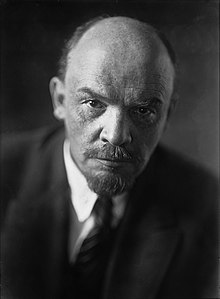Welcome to the first week of the Imperialism Reading Group!
This will be a weekly thread in which we read through books on and related to imperialism and geopolitics. How many chapters or pages we will cover per week will vary based on the density and difficulty of the book, but I'm generally aiming at 30 to 40 pages per week, which should take you about an hour or two.
The first book we will be covering is the foundation, the one and only, Lenin's Imperialism: The Highest Stage of Capitalism. We will read two chapters per week starting from this week, meaning that we will finish reading in mid-to-late February. Unless a better suggestion is made, we will then cover Michael Hudson's Super Imperialism, and continue with various books from there.
Every week, I will write a summary of the chapter(s) read, for those who have already read the book and don't wish to reread, can't follow along for various reasons, or for those joining later who want to dive right in to the next book without needing to pick this one up too.
This week's chapter summary is here.
This week, we will be reading Chapter 1: Concentration of Production and Monopolies, and Chapter 2: Banks and their New Role.
Please comment or message me directly if you wish to be pinged for this group.

Just some interesting things to note
Chapter 1
Chapter 2